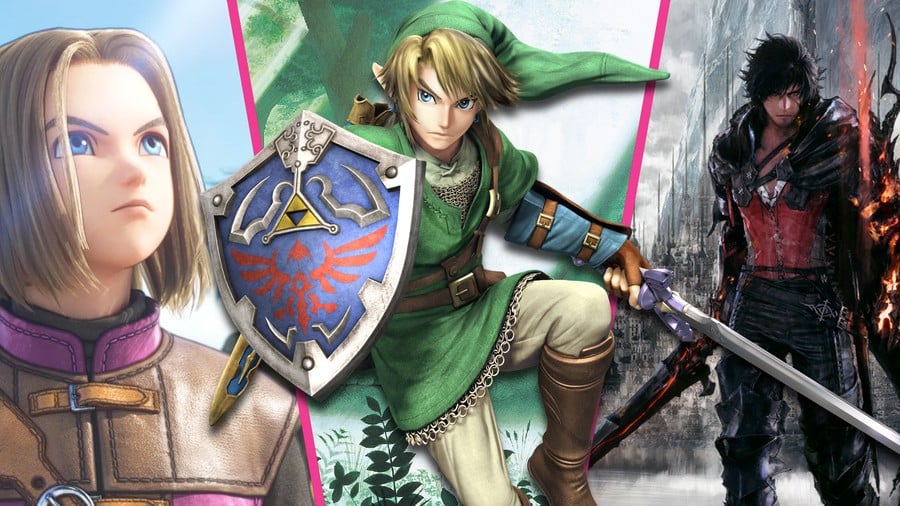
In 2003, the hugely respected Japanese publication Famitsu held a reader poll to find the top 100 Famicom games. In the top 10, there were six RPGs with a Medieval theme and a seventh RPG with a contemporary Western theme (Mother). The highest-ranking game with a feudal Japanese theme was #13 – Kunio Kun no Jidaigeki Dayo Zenin Shuugou (Downtown Special Kunio-kun's Historical Period Drama!). There's no getting around it; the average Japanese RPG is still, more or less, based on European medieval folklore; titles like Final Fantasy XVI, Tactics Orge: Reborn and Elden Ring all sport settings that call upon western fantasy as their bedrock. But why is this the case? Why does a nation that has such a proud history choose to largely ignore it when it comes to one of its most popular video game genres?
To find out, we need to rewind the clock a little. The RPG is traditionally the most story-heavy genre of video games, with almost the entirety of early Western examples openly taking influence from pen & paper role-playing games such as Dungeons & Dragons. Created by Gary Gygax, the hugely influential D&D was itself influenced by J.R.R Tolkien and numerous other fantasy fiction writers, in addition to its predecessor Chainmail. These fiction writers in turn took influence from literature, poetry, opera, folklore, mythology, and real-life historical accounts from across Europe, dating back millennia. The stories of American and European RPG video games have a very clear and logical evolution derived directly from a shared cultural heritage.
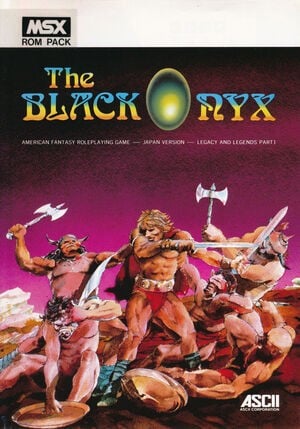
However, while Japan has its own distinct cultural heritage and folklore to draw upon – involving popular iconography such as katana-wielding samurai, Sengoku-period wooden castles, Oni demons, Youkai spirits, and much more dating back millennia – the most popular early Japanese RPGs all had a distinct European theme, and, as we've just mentioned, this has influenced the genre right the way up the present day.
The knights and eponymous dragons in Dragon Quest are styled after European medieval folklore. The wizards and paladins from Final Fantasy are the same. Any keen video game historian can obviously cite counterexamples, such as Naze no Murasamejou on Famicom Disk System, but even so, it was overshadowed by the vastly more popular The Legend of Zelda on Famicom, whose elf-boy protagonist and skeleton-filled Hyrule are undeniably more European than Japanese (Manji dungeon notwithstanding).
Dragon Quest was the most popular and therefore defining early RPG in Japan, so titles which followed tended to copy it. Even so, the list of preceding examples of Japanese takes on Western tropes is extensive. Koei's Dungeon, Enix's Parallel World, Cosmic Computer's Courageous Perseus, Xtalsoft's Mugen no Shinzou, T&E Soft's Hydlide, Falcom's Dragon Slayer series, plus plenty of others, were all Japanese interpretations and adaptations of stories and themes originating in Europe.
Yet when reading interviews with Japanese developers, it's apparent that none were reading the fantasy literature popular with Western developers, and while a few knew of D&D, the majority were in fact fans of Wizardry and Ultima on the Apple II. These two Western games, above all else, were the direct influencers of a generation of RPG developers, and were said developers' primary cultural sources. Other fantasy titles, such as Hydlide and Dungeon, were influenced by Bullet-Proof Software's The Black Onyx, developed by Dutchman Henk Rogers – who is perhaps more famous for being the man who 'discovered' Tetris for Nintendo. Despite its designer being European, the game was developed with the Japanese market in mind and would prove to be incredibly influential.
When interviewing developers behind these games, they all reference Western tabletop games, or computer games, which they enjoyed. Rather than earlier Western sources, such as Tolkien books, or King Arthur stories. It seems almost as if Japan's introduction to Western folklore was through Western games.
Keen to get some additional perspective, we spoke to a select few knowledgeable individuals to get their viewpoints on this matter.
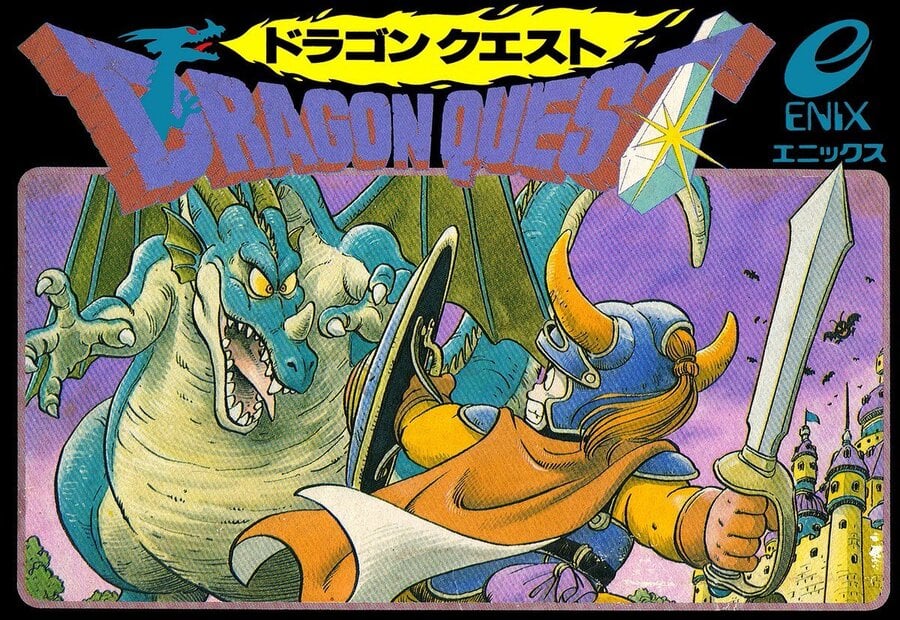
Oleg Benesch, PhD
Lecturer in East Asian History (Assistant Professor), University of York
I'm afraid that I don't have much more knowledge of the issues in the late twentieth century than what you mention, although it does sound plausible. It would certainly be interesting if that were the case, and would be a fitting parallel to the late nineteenth century, when the first formulators of bushido were inspired by Victorian gentlemanship and European ideals of chivalry and knighthood. Only later did they impose these same models onto the Japanese context. In the same way, I wouldn't be surprised if Japanese game developers were inspired by Western games. For some broader historical context, Thomas Keirstead has an article on Inventing Medieval Japan, which discusses this phenomenon in the Meiji period (as does my Inventing the Way of the Samurai).
Ted Woolsey
Localiser on SquareSoft RPGs such as Secret of Mana, Final Fantasy VI and Chrono Trigger
Much of what I did came in after the fact, when the text was either being written or done. I did, of course, see libraries of books in many languages that informed many of the monsters (names, attributes, etc.), so I know the designers played with Western themes and names that were consistent in the games. In some ways I think cinema (e.g. Star Wars) had as strong an impact on the games (even how music was used) as any of those other titles you mention, at least for the folks at Square. They seemed to be very focused on cinematic storytelling methods and impact, narrative design, pacing etc., even though some of their games were 60~80 hours long.
Casey Loe
Long-time games journalist, Japanese game localiser
That's an interesting thesis, and I think you're largely correct. I looked into the history a little bit to make sure there were no other major works that could have been contributing factors, and couldn't find much. In the '60s and '70s, manga based on Asian mythologies far outnumber manga based on western fantasy, of which there are very few examples, suggesting swords & sorcery fantasy was not well known or popular pre-DQ. I wondered if Dungeons & Dragons was what kicked things off, but according to the Japanese Wikipedia page for D&D, its first localization was released in Japan in 1985, and was in demand largely because Japanese gamers were already so familiar with its computer game offshoots like Wizardry and Ultima. Most of Japan's best-known early homegrown fantasy series started around the same time as Dragon Quest, with The Heroic Legend of Arslan novel series starting in 1986 (so it was written pre-DQ but post-Wizardry) and The Record of Lodoss War manga also starting in 1986.
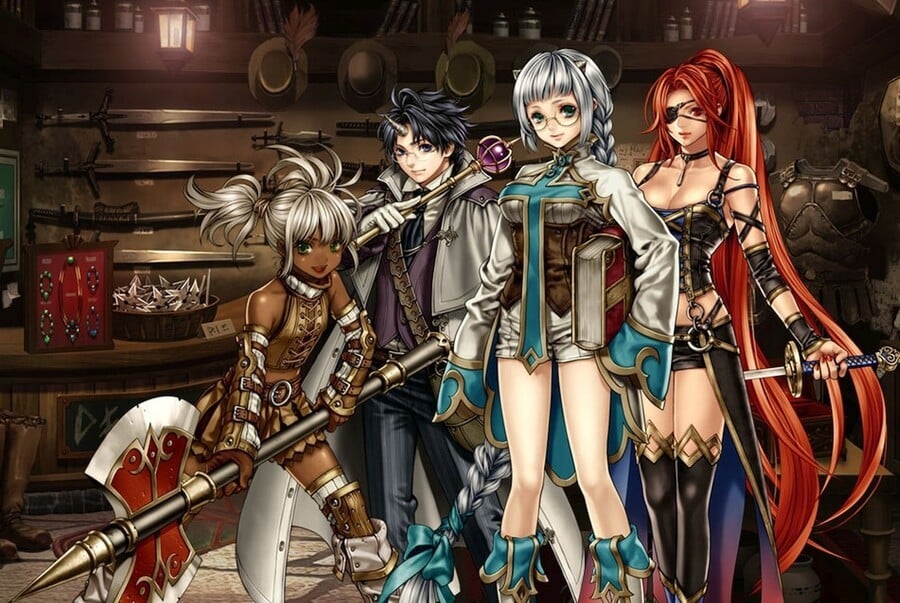
Strictly speaking, games didn't introduce Medieval-based fantasy to Japan. The Lord of the Rings was localized in the '70s and Narnia in the '60s, but were not hugely popular or influential at the time. Gulliver's Travels (does that count as western fantasy?) was fairly influential in Japan (and was probably the actual inspiration to Tengai Makyo), and clearly inspired Miyazaki's Castle in the Sky, which contributed to 1986's fantasy boom. Osamu Tezuka wrote a few manga that roughly fits into that genre in the '60s and '70s, like Princess Knight and Triton of the Sea, but he was very prolific and did manga based in a huge variety of mythologies, so that doesn't indicate it was a popular or well-known setting. So I would certainly agree that Wizardry and Ultima was the start of western fantasy's niche popularity in Japan, with Dragon Quest and Final Fantasy being the start of its mainstream popularity.
As to the why, I don't think the exoticism was necessarily a selling point. I would suspect it was just the fact that Japan was hungry for computer games and the most technologically advanced games were western games with sword & sorcery themes, giving the first generation of computer players an incentive to play them despite the unfamiliar settings. (It's a testament to how far players would go to play state-of-art games that so many of them muddled through them in English years before proper localizations were released.) I think one other factor working in favor of the genre was that Star Wars was very popular in Japan at the time, so that even if the setting didn't resonate at first, the mythic-hero fantasy stories did.
Takayuki Komabayashi
Japanese game preservationist, game developer, Aleste Collection, Namco Museum Archives Vol. 1
I can agree with your opinion that Japanese games, especially RPGs, are based on European myths and Western games such as D&D, Ultima, and Wizardry. I think there are some reasons why Western themes are so popular in Japan. Firstly, Western games were the newest games in the early 1980s, and many Japanese wanted to play them. Second, European myths were new to the Japanese, too. We still think the worlds based on those myths are "cool". I heard that Western gamers like Tengai Makyou, but we don't think using Japanese folklore and traditions is "cool".
Makoto Goto
Game developer; infamously asked Phil Fish about Japanese games
When I was a child, I felt a big impact when I played Ultima and Wizardry. It was fun when I talked with friends about these games. Yes, I am inspired by them. Maybe, most old Japanese game developers are same. This is my opinion: when I was a child, I often imagined many things. Using knowledge from books and manga, travelling on an adventure, receiving a spirit's protection, fighting monsters, mastering magic, rescuing the city as it gets stronger, and finally fighting the mighty evil and saving the world. What a wonderful story! I think that game worlds are filled with such dreams, and the worldview of Medieval Europe is better matched to that. Whereas I feel it does not really match the old worldview of Japan. To put it another way, I guess the Medieval European view of the world, more so than the old Japanese worldview, was easier and more imaginable. I also think old Japanese games were made for Japanese children at first.
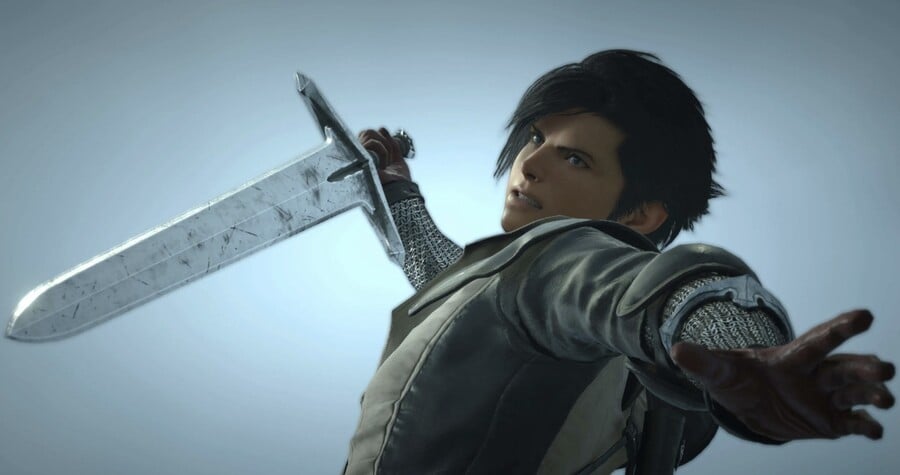
Hiromasa Iwasaki
Programmer on several Japanese RPGs, incl. Ys I & II; games historian
When the history of Japanese video games began (around 1975~78), the main themes for games were science fiction, or contemporary sports, or tasks like window wiping (Crazy Climber), or from films like King Kong (Donkey Kong). The decisive shift away from the sci-fi theme was the success of Dragon Quest, which was strongly influenced by Wizardry and Ultima. With the success of Dragon Quest, Japan's RPGs were based on D&D. In addition, with the successes of the foundational Tower of Druaga and Hydlide, plus subsequent copycat games, the action-RPG genre also made Western folklore and its fantasy worlds seem normal. However, these games do not reference the "swords & sorcery" which started with Lord of the Rings originally, or even something like Weird Tales, the American fantasy pulp magazine that started in the 1920s. No, Japan has been completely under the influence of Wizardry, Ultima, The Bard's Tale, various movies, and other games based on the above works. In other words, the Japanese "fantasy" game is a follower of overseas games and 1980s movies.
Rica Matsumura
Japanese game developer, Yumi's Odd Odyssey, Code of Princess
I partially agree with your idea. The Japanese closed the country to outsiders from 1639 until 1853. When they reopened the country they were astonished by the cultural differences. For example Japanese samurai were easily killed by gunshot – they were surprised! So Japan started studying Western culture by mimicking it. As part of this studying, Japanese people started to read Western books including folklore. For kids, Grimm's Fairy Tales, Aesop's Fables, Greek mythology, and others were the recommended books. There was also King Arthur, The Three Musketeers, and more. So Japanese people read these books and learned the folklore.
In addition, the Japanese believe Western culture is cool, but not Japanese culture. So, when a Japanese person tried to think about a "cool story", it was easy to consider a Western story. On top of that, the Japanese love ghosts and other supernatural things. Those elements don't fit into Western culture nowadays, but they fit into Medieval folklore, so Japanese creators tend to choose those settings. At the same time, "mimicking" for video games started with Pong in 1972. While mimicking, Japanese developers studied lots of Western arcade games. As a result of both of these factors together, the Japanese learned about Western folklore. So yes, I partially agree.
Matt Fitsko
Matt Fitsko is a professional translator living in Japan, keen videogame enthusiast, and was instrumental in completing V1 and V2 of The Untold History of Japanese Game Developers.
Japanese versus Western fantasy is a fascinating topic. Personally, I think part of it is that Japan was simply riding the huge fantasy boom that occurred in the West from about 1965-1990. During that time we saw the hugely successful, unauthorised US republication of the Lord of the Rings; the Ballantine Adult Fantasy series which repackaged older fantasy works as a coherent, unified literary genre; the franchising of Conan the Barbarian via pastiche novels and comic books; D&D of course; the artists Frank Frazetta, Boris Vallejo, and Julie Bell; the many many 1980s fantasy movies; and the rise of computer RPGs in Wizardry, Ultima, Might & Magic, Rogue, Nethack, and so on.
The first Japanese edition of the Lord of the Rings appeared in 1972, and Japanese-authored Western-style fantasy began to flourish in the late 1970s and 1980s, like the Guin Saga, Arslan, and Lodoss. Light novels were also becoming a thing around this time, and slowly shifted away from science fiction stories (Crusher Joe, Legend of the Galactic Heroes) to more fantasy, leading all the way up to the endless tsunami of isekai stuff today.
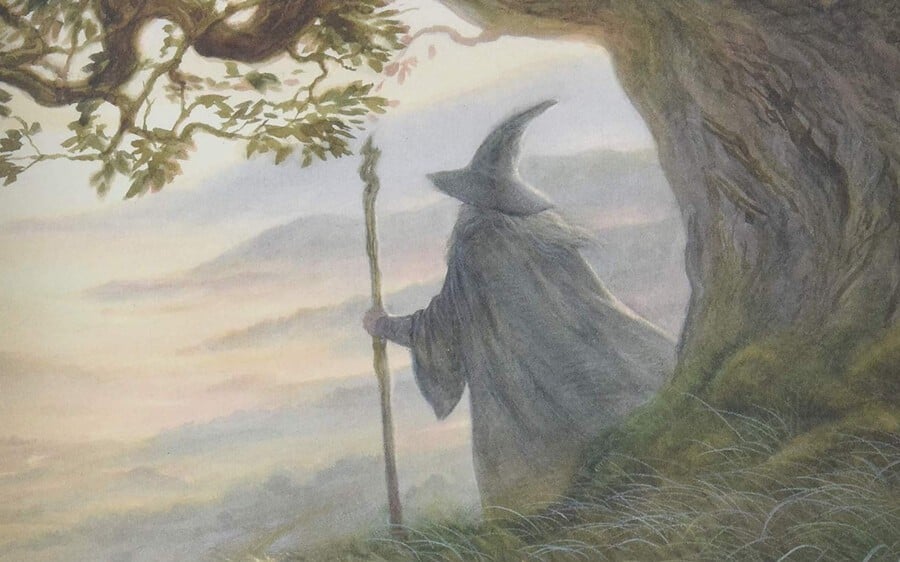
Notably, D&D arrived in Japan late, basically after interest was sparked by games like The Black Onyx, Dragon Quest, and so on. This is partly why western RPGs and JRPGs diverged: for a long time Western RPGs were trying to recreate the tabletop experience, complete with tedious character creation screens, half-baked alignment systems, underused non-combat skills, and endless dialogue trees. Japanese developers, having no such loyalty to the old pen-and-paper traditions, ditched most of these systems to create the more streamlined, linear JRPG.
From personal experience, I also know that many Japanese people first encountered Western fantasy in elementary school, by reading translations of Western myths, legends, folklore, and fairy tales in the school library. (Hidetaka "Souls" Miyazaki is a prime example of this type.) On the other hand, it seems like a lot of those early Japanese game developers first encountered Western fantasy through Western games, not literature.
Either way, in 1970s ~ 1980s Japan, Western fantasy was just in the air, so to speak, and many people breathed it in. Once Dragon Quest really got the ball rolling, everyone jumped in on it. Conversely, I'm not sure that Japanese-style fantasy was really solidified at that point. Obviously there was folklore, yokai stories, stuff like that, but that's different from full-blown fantasy literature, and typically leans more toward the horror genre if anything. Today, I think we tend to underestimate the imaginative leap required to go from historical fantasy ostensibly set in the real world (the Homeric epics, King Arthur, The Song of Roland) to a full-blown, self-contained universe like Tolkien's Middle Earth. As far as I am aware, Japan didn't have that kind of self-contained, separate-universe fantasy. Maybe Tengai Makyo? But that didn't come out until 1989.
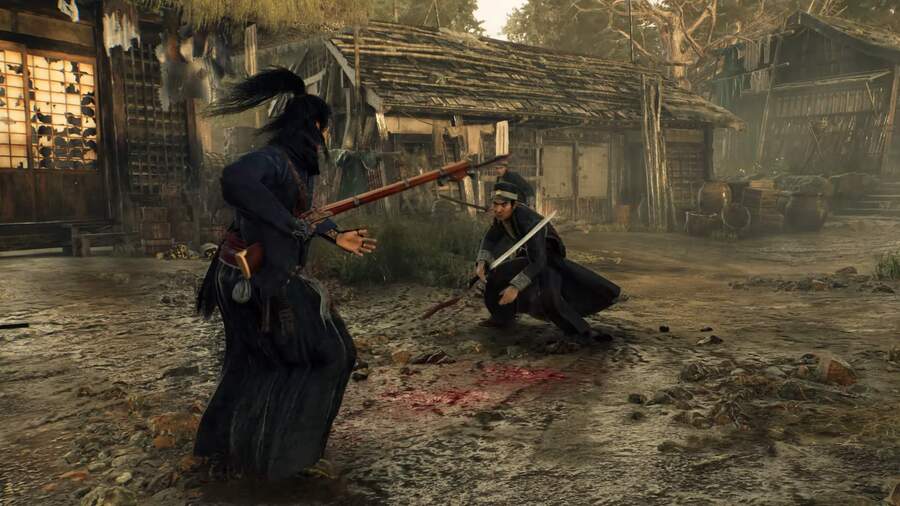
What did exist in Japan, in copious quantities, were the non-fantastical jidaigeki TV shows, movies, and novels, and those were decidedly not cool for that generation of Japanese kids. That's the kind of stuff your dad would watch on the weekends. The analogy would be like a young person today getting really excited about reruns of Bonanza and Gunsmoke. So at that time in Japan, the samurai and ninja stuff (1) wasn't fantasy, and (2) wasn't cool to begin with.
Nowadays, it's interesting to see the resurgence in Japanese historical fantasy settings like in Nioh and Sekiro. They're finally localizing Ryu ga Gotoku Ishin, too, and Team Ninja announced Rise of the Ronin. Not to mention the Western-developed stuff like Ghost of Tsushima and the new Assassin's Creed. Read Dead Redemption made cowboys cool again, and it looks like samurai and ninja are next.
So, it would seem our stance is correct, at least to a certain degree – but, as Takayuki Komabayashi and Rica Matsumura note above, western culture is also seen as 'cool' by Japanese people, in very much the same way that, for a period in the '70s and '80s, movies with ninjas were popular in the west, and, more recently, anime and manga have become mainstream in western culture due to their inherent 'cool-ness'. While they're not anywhere near as numerous as western-themed RPGs in Japan, western-developed titles like Last Ninja, Ghost of Tsushima, First Samurai and Trek to Yomi prove that inspiration can work in the opposite direction, too.
John Szczepaniak has been a journalist for over 15 years and has written for more than 20 publications, including Retro Gamer, GamesTM, Official PSM, Game Developer, and Gamasutra. He is the author of The Untold History of Japanese Game Developers series of books and Japansoft: An Oral History.
